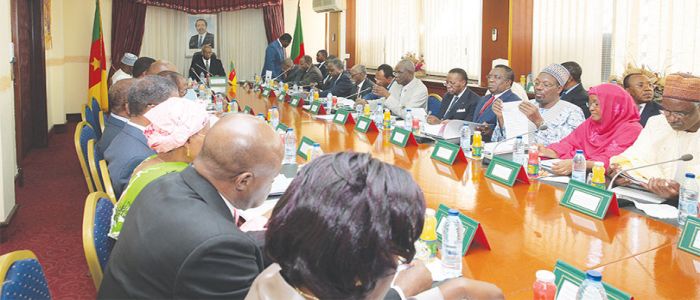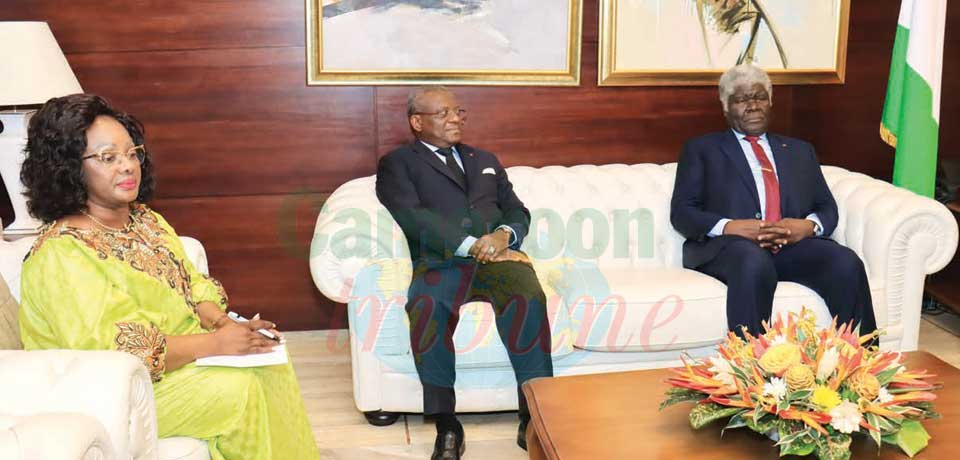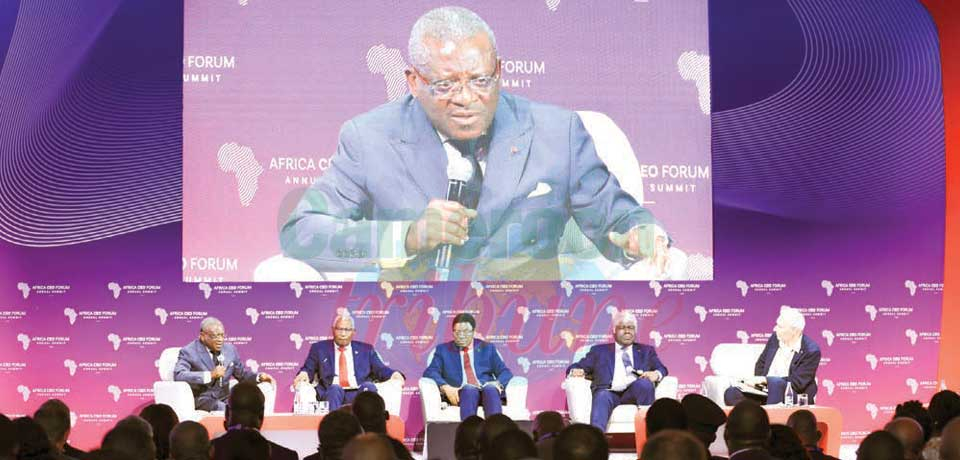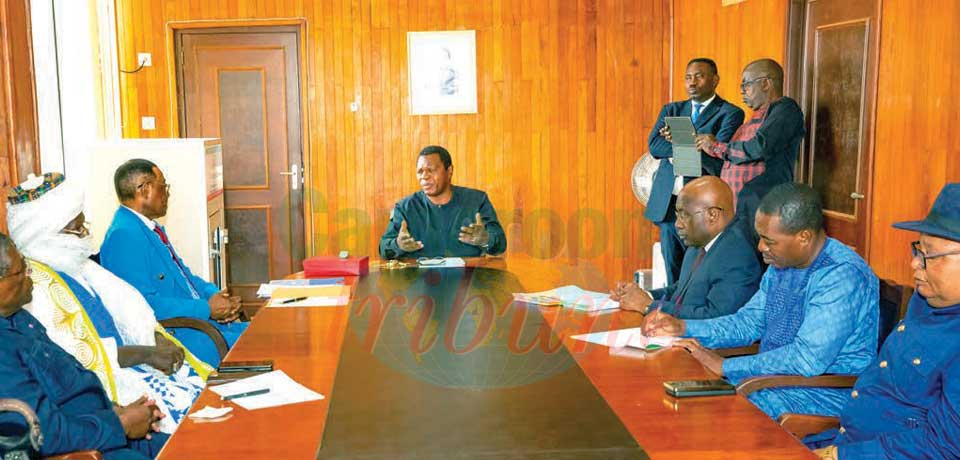
Below is a press release from the March 2017 Cabinet Meeting.
“The Prime Minister, Head of Government, His Excellency Philemon Yang, this Thursday 30 March 2017, chaired an important Cabinet Meeting at 9 a.m. at the Prime Minister's Office.
Besides his close aides, the meeting was attended by the Vice Prime Minister, Ministers of State, Ministers, Ministers Delegate and Secretaries of State.
The following points featured on the agenda:
1-a statement on "innovations induced by the reform of Cameroon 's Penal Code", presented by the Minister of State, Minister of Justice and Keeper of the Seals;
2- a statement on "the Rural Electrification Master Plan in Cameroon ", presented by the Minister for Water Resources and Energy;
3- a report on "the implementation of the reform on the management of State personnel through SIGIPES", presented by the Minister for the Public Service and Administrative Reform.
Following the introductory statement of the Head of Government, the Minister of State, Minister of Justice and Keeper of the Seals, presented major innovations of the Penal Code, contained in Law No. 2016/7 and Decree No. 2016/319 of 12 July 2016. The Minister of Justice indicated that these innovations include Volume 1 on general criminal law, which introduces alternative sanctions and criminal liability of legal persons. Regarding alternative sanctions, they are decided as alternatives to short-term prison sentences of less than two years. This concern community service, punishment and redress, the application of which will eventually contribute to reduce the number of inmates. As for the criminal liability of legal persons, it relates to offences committed for the benefit of the said entities by their organs or representatives. The major penalties incurred, namely the dissolution, close-down of the establishment and a fine, coexist with accessory penalties.
Concerning Volume II of the Penal Code on special criminal law, the Keeper of the Seals indicated that innovations in this Volume partly concern the protection of women, the family and children, through the criminalization of genital mutilation, sexual harassment and the prevention of the right to education. These innovations also concern the improvement of social life to promote the criminal protection of all victims who denounce corruption acts to judicial authorities, the suppression of ritual crimes, insider offences, the refusal to execute final court decisions, rental frauds and the illegal sale of medication. Moreover, this legislative innovation also included the reformulation of certain articles, such as the encroachment of some judicial authorities on certain immunities.
The Minister for Water Resources and Energy was the second to take the floor. He presented the Rural Electrification Master Plan (PD ER) in Cameroon, which was elaborated following a participatory approach based on strategic guidelines of the State. He noted that the rate of electrification presents substantial disparities between urban and rural zones. He underscored that the objectives of PDER include, among others; (i) enabling almost all Cameroonians to access the electricity network; (ii) optimizing renewable resources to provide electricity to remote zones of the electricity network; (iii) promoting the development of productive sectors.
Broken down in four phases, with each lasting five years, PD ER is planning, the electrification of the 10,000 localities that do not yet have access to electricity, by 2035. In this regard, there are plans to carry out 50,000 connections per year in rural areas over a period of 20 years, that is, a total of one million connections, at an estimated total cost of CF AF 805 billion. The Minister of Water Resources and Energy concluded his statement by taking stock of the preconditions to be put in place for the success of this ambitious project.
The last statement was the report by the Minister of Public Service and Administrative Reform on the implementation of the second generation of the Computerized System for the Integrated Management of State Personnel and Payroll (SIGIPES II). First of all, he recalled that SIGIPES II represents a genuine technological leap in quality, in that it is a unique application that will enable integ...
Cet article complet est réservé aux abonnés
Déjà abonné ? Identifiez-vous >
Accédez en illimité à Cameroon Tribune Digital à partir de 26250 FCFA
Je M'abonne1 minute suffit pour vous abonner à Cameroon Tribune Digital !
- Votre numéro spécial cameroon-tribune en version numérique
- Des encarts
- Des appels d'offres exclusives
- D'avant-première (accès 24h avant la publication)
- Des éditions consultables sur tous supports (smartphone, tablettes, PC)














Commentaires